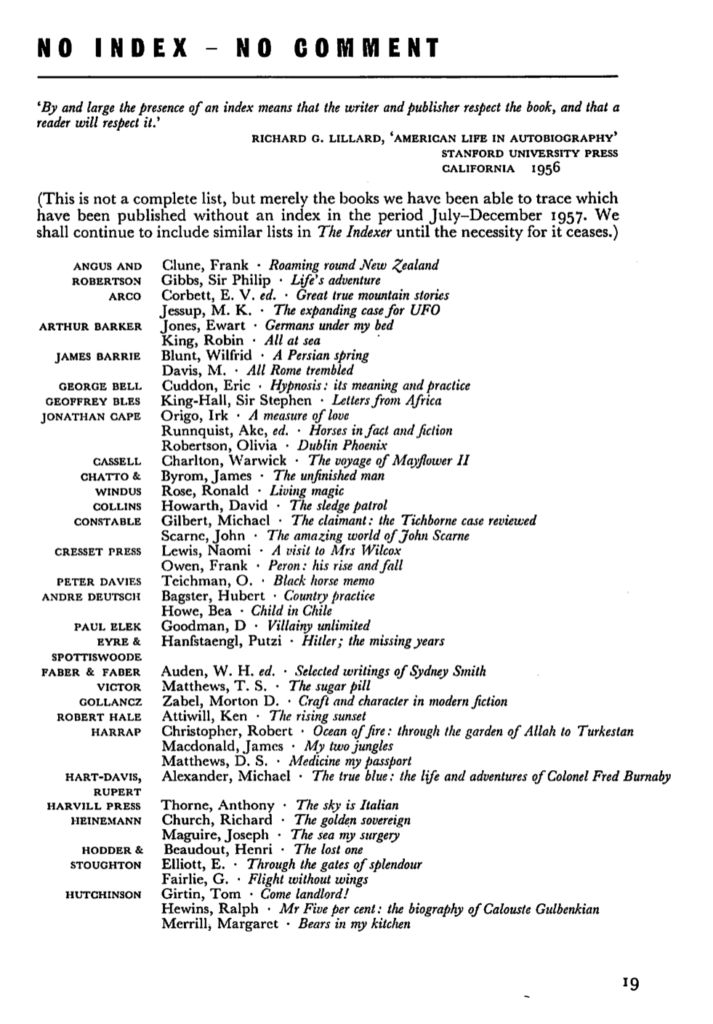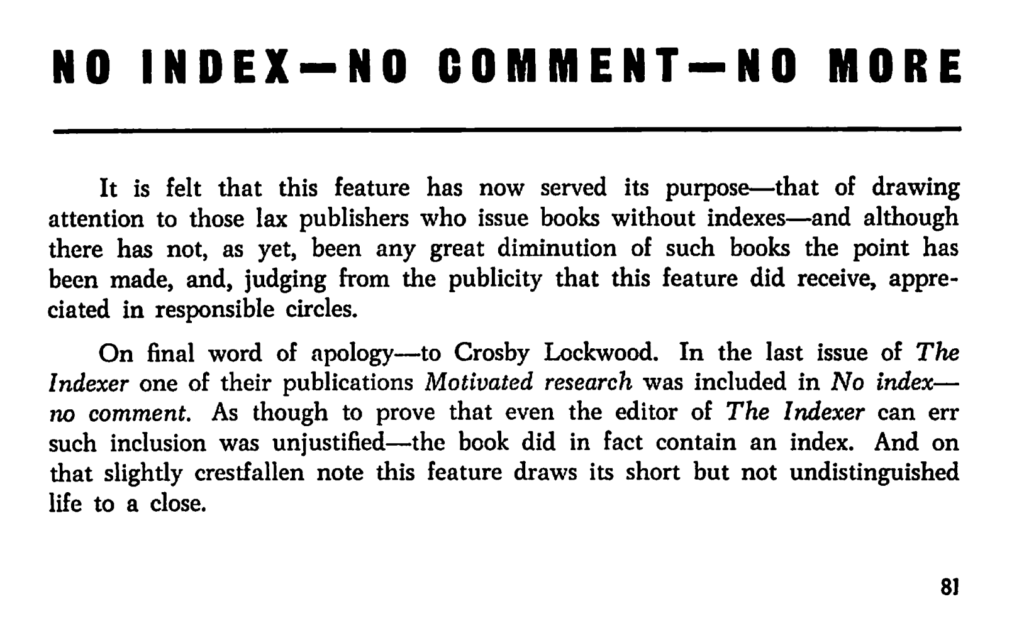The Indexer1 is a professional journal published since 1958 by the Society of Indexers.2 The first two issues3 contained a feature titled “No index—no comment,”4 which listed recently published books that did not have an index. The quote at the start of the feature, from one Richard G. Lillard, reads, “By and large the presence of an index means that the writer and publisher respect the book, and that a reader will respect it.” This is exactly my brand of professional petty, I love it.5
The feature was defunct by the journal’s third issue, announced under a heading that read, “No index —no comment—no more.”
I’m so curious about the “publicity” the feature received…
Notes, etc.
- Alternative home for The Indexer. I think the archives are easier to access from this site.
- I learned of the publication while rabbit-holing the American Society for Indexing‘s website, which I stumbled upon during the course of reading Judith Fleming’s newest book, A Place for Everything: The Curious History of Alphabetical Order.
- Why the em dashes instead of en dashes with spaces between each dash and word? My own personal pretentious preference? “No index – no comment.”
- I actually laughed out loud when I first found this because it hits so close to home. I have spent a not insignificant chunk of time bitching about a book I often consult during the course of my ~research~ lacking an index, and how frustrating it is to try to reference.

